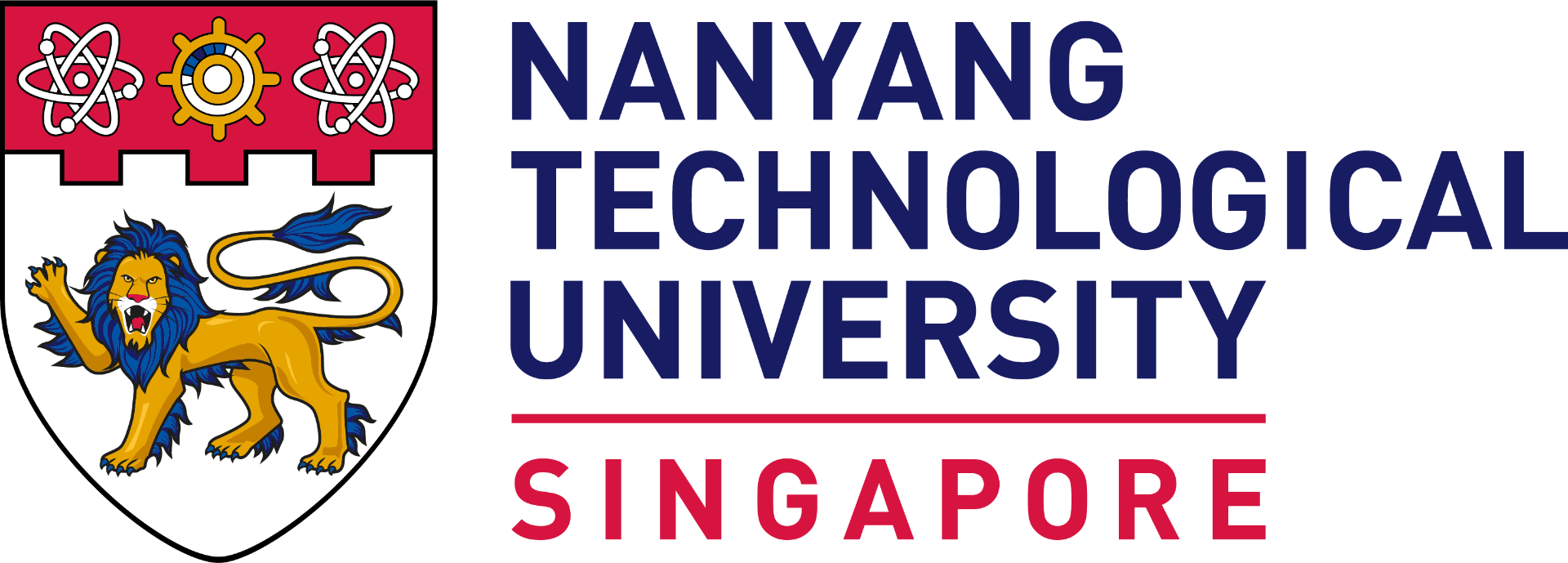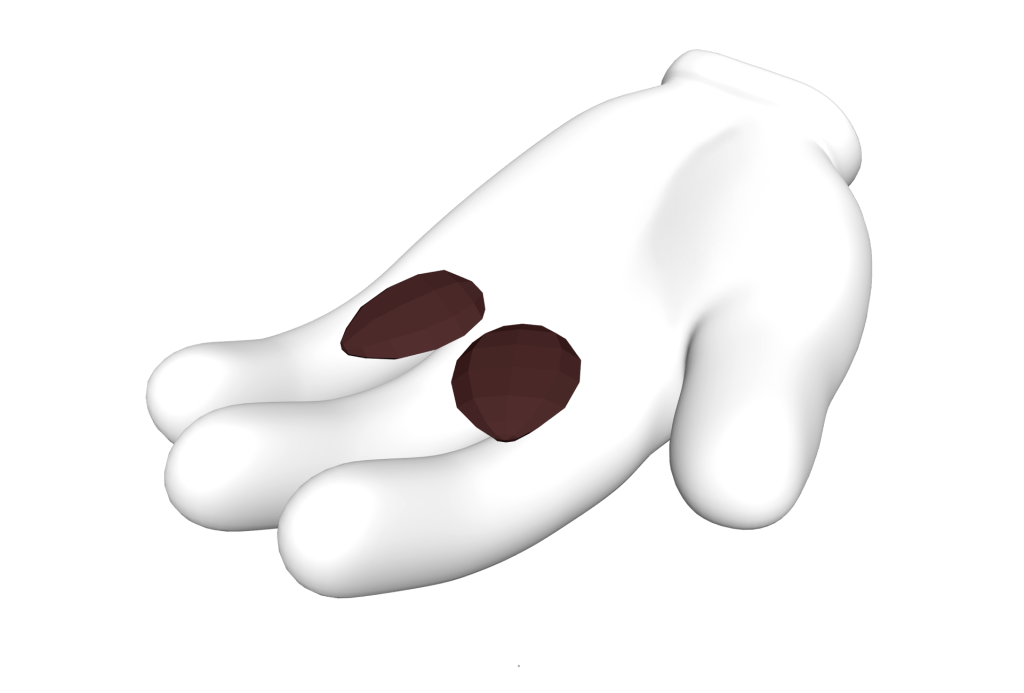Signs of caring for the environment are everywhere at NTU, even on campus roads
by Derek Rodriguez
1. We planted 100 trees
It was all hands on deck as the NTU Board Chair, professors and students turned out in full force to plant 100 trees on campus. Led by student environmental club Earthlink NTU, eight species of rare native trees, including the critically endangered Palaquium gutta and the paper bark tree, which is presumed to be nationally extinct in the wild, were planted along Nanyang Avenue. Apart from contributing to climate resilience and liveability, this also supported NParks’ nationwide initiative to plant a million trees by 2030.
NTU Board Chair Ms Goh Swee Chen (right) with Assoc Prof Valerie Du Toit-Low, Deputy Associate Provost (Residential Education).
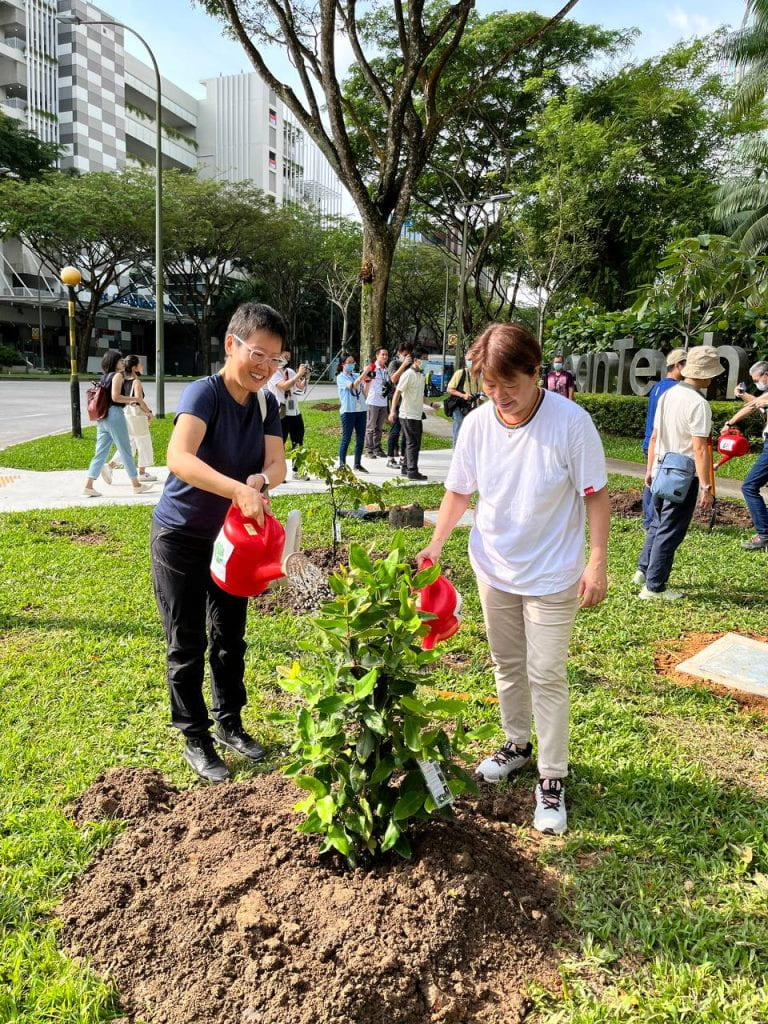
2. Even otters set up home at Yunnan Garden
The verdict is out. Yunnan Garden has been given the seal of approval by otters. These discerning animals have been spotted frolicking in the water and on walking paths next to long-tailed macaques. With more than 80 species of trees, picturesque wetlands, a cascading waterfall and thematic trails in the garden, we’d live there too if we could.
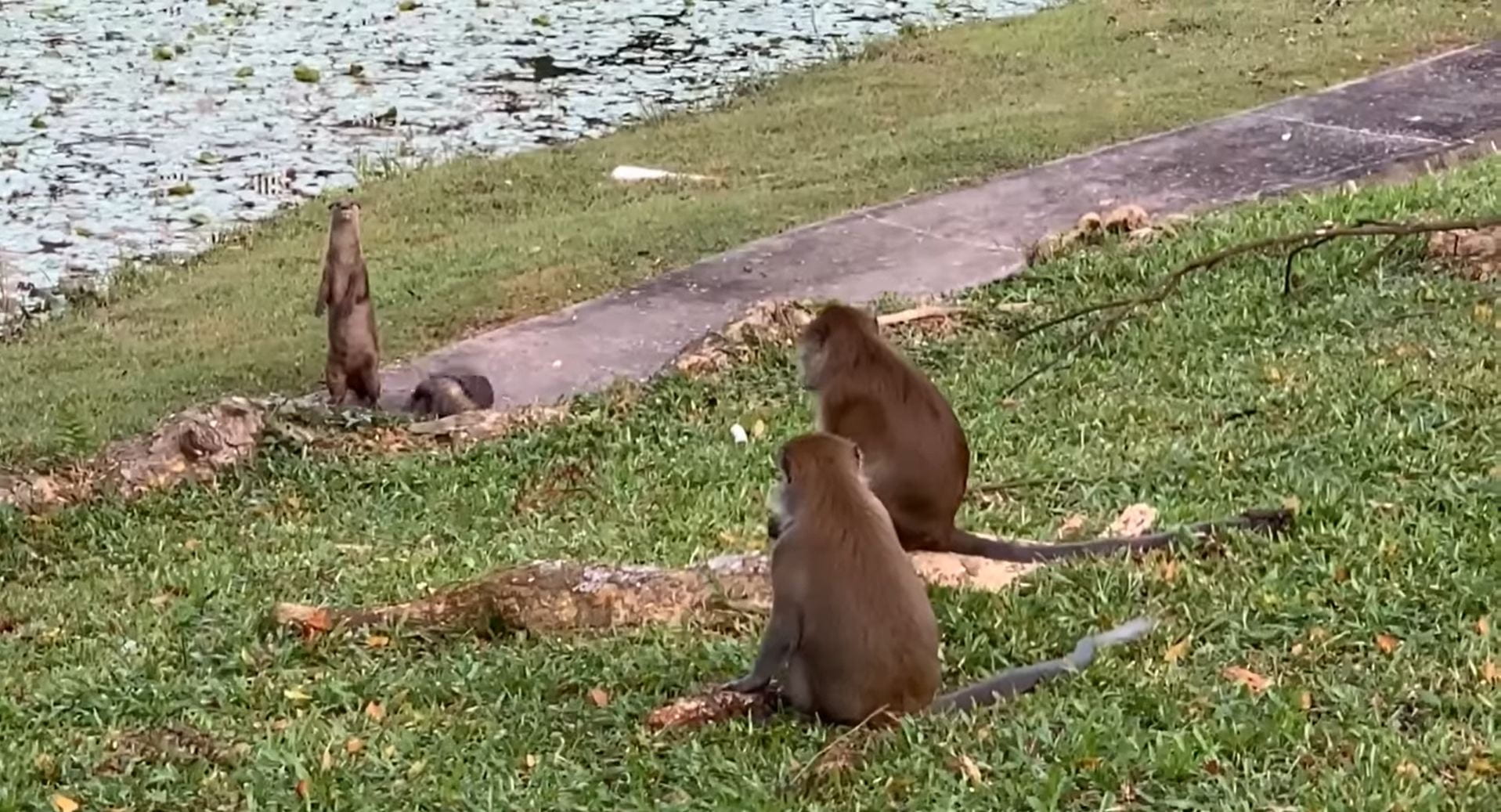
3. Stop: Animal crossing!
We have animal crossing signs so that you watch out for wildlife in NTU not just with your cameras, but when you drive too. Our 200-hectare campus is a treasure trove of rare species of birds and mammals like the critically endangered Sunda pangolin. Some exciting sightings in recent years include a showdown between a king cobra and a reticulated python, and appearances by a barred eagle-owl, which was followed by throngs of bird-watchers with mega telephoto lenses. The calls of the spotted wood owl are regularly heard on campus.
4. We give leftovers a do-over
Labs in NTU are cooking up a storm with discarded food such as the shell of crustaceans and fruit peel waste. Through organic processes, food waste that usually ends up in the bin like prawn shells, orange peels, durian husks and seeds, and grape skins are converted to useful products such as food stabilisers, food packaging and antibacterial bandages.
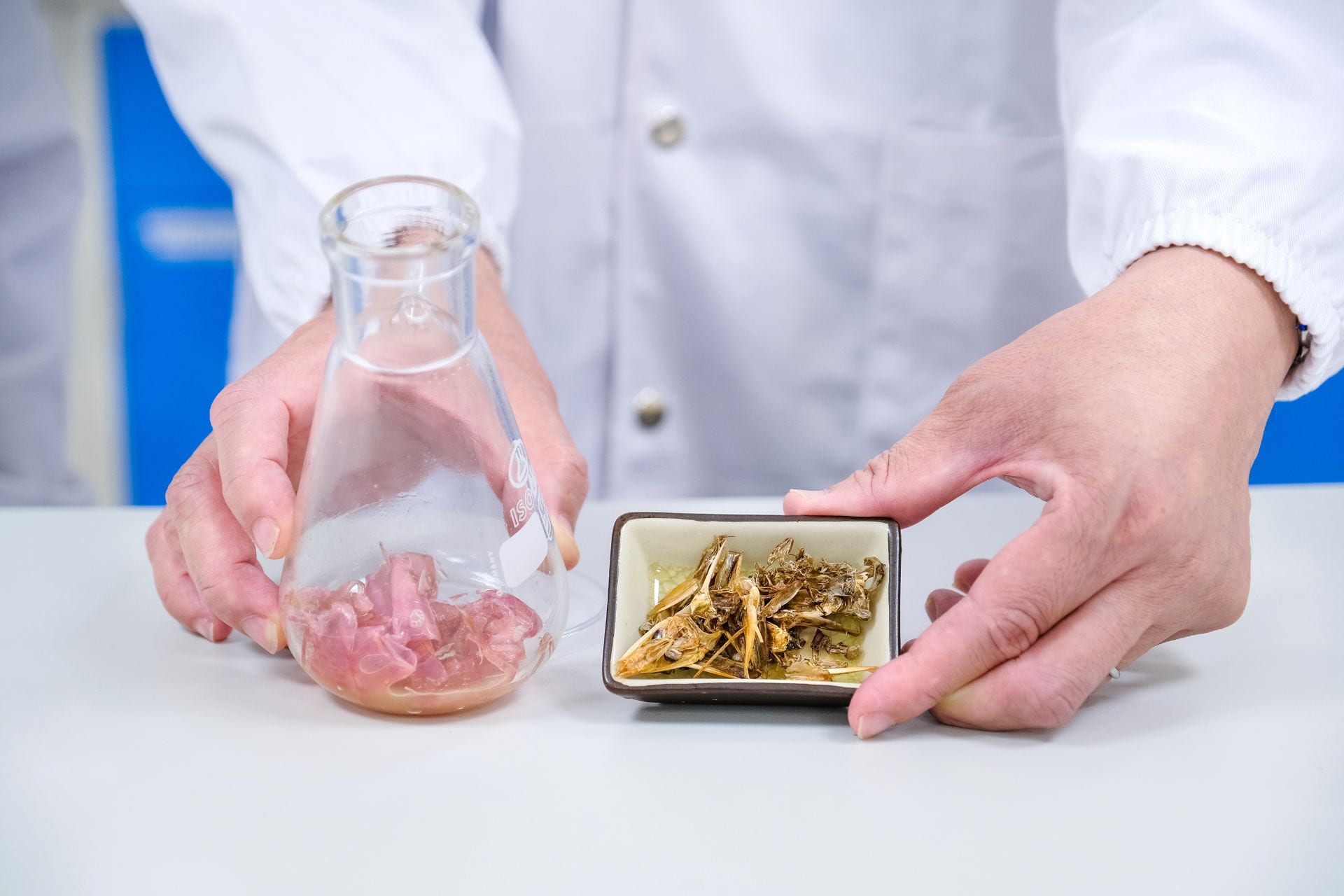
5. Felled trees become works of art
If you’ve used a bench at the Experimental Medicine Building or at the College of Humanities, Arts & Social Sciences building, you might have sat on an old campus tree. Trees felled to make way for new buildings on campus were upcycled and transformed into useable art pieces, including chairs and tables. Nothing was discarded, not even leftover scraps, which were turned into items like stationery and jewellery boxes.

6. We often talk about sustainability in class
Conversations in class between bright young minds sometimes end up as innovations that transform the world. Talking about environmental sustainability – one of humanity’s grand challenges – and finding solutions to it is essential to our survival. From the start of their studies, NTU undergrads take sustainability courses as part of the interdisciplinary common core curriculum. NTU also offers 200 electives related to sustainability and has launched minors in topics such as environmental management and environmental history, as well as a PhD programme in artificial intelligence and sustainability.
7. We will be rolling out a fleet of electric buses
There’s no point keeping this hush-hush anymore! From this month, a fleet of silent electric buses will progressively roll out on NTU roads to ply the green, red, blue and brown routes. At the same time, the Smart Mobility Experience Centre in the North Spine will open their doors to visitors interested to learn more about the future of smart transport that is also kinder on the environment. Meanwhile, download the NTU Omnibus app on your phones to keep track of shuttle bus locations and occupancy rates.
8. Our trash is turned into treasure
On this campus, we don’t let our garbage go to waste. All trash is sent to our waste-to-energy research facility, where solid waste is converted to slag and metals, which are used as construction materials, as well as fuel gas. You can do your part too by discarding your electronic waste in the e-waste recycling bins, your used pens in the Save That Pen bins, and excess food in the Food Bank bins on campus.
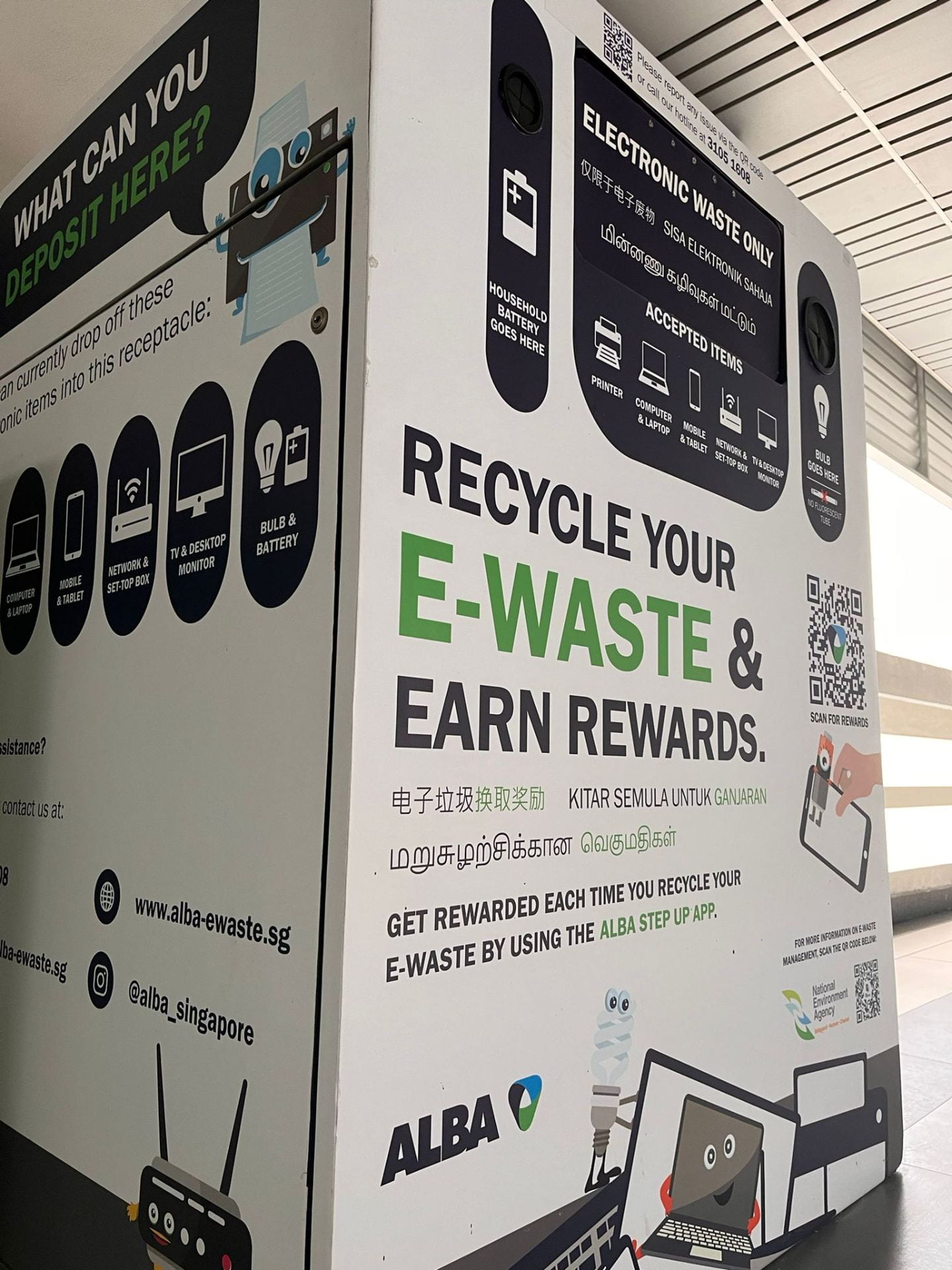
9. We have mapped bold goals for the next 15 years
We don’t just talk the talk. We walk the walk. Underlining our commitment to going green is a plan to reduce 50% of our net energy utilisation, water usage and waste generation by 2026, compared to the levels of 2011. We want to achieve carbon neutrality by 2035 and reduce gross carbon emissions intensity by at least 50% from 2019. Be part of the campus’ eco movement!
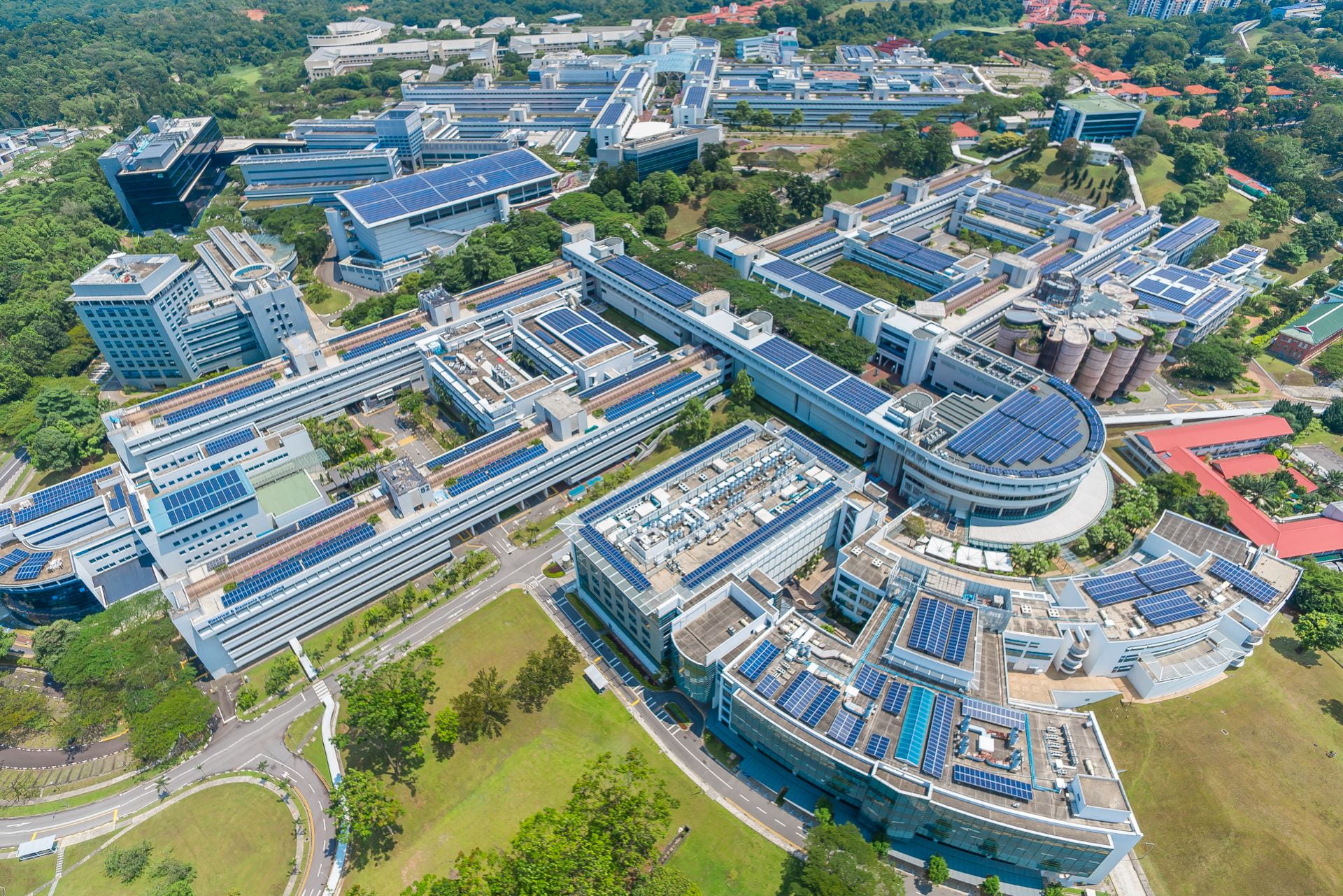
10. Our buildings are certified green
With our striking architectural pieces, we’ve been in international lists of the most beautiful universities. But it is beauty with substance as 97% of our building projects are Green Mark Platinum certified too. And if you’ve had lunch at the South Spine, you would have noticed the nearly completed new kid on the block that is going to be the new home of the Nanyang Business School, amongst others. At 40,000 sqm, this will be Asia’s largest wooden building and is being built with mass engineered timber from renewable forests.
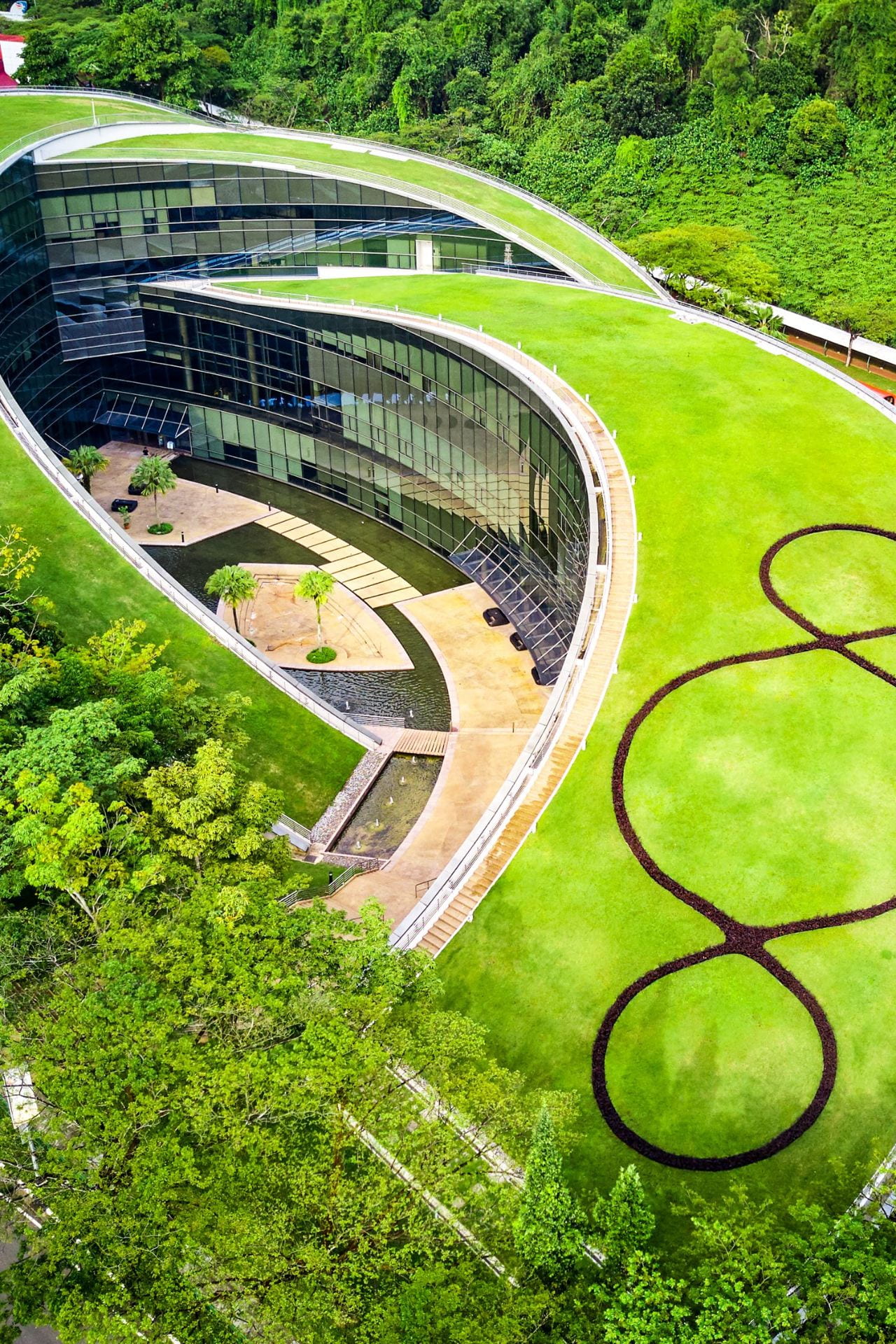
This story was published in the Oct-Dec 2022 issue of HEY!. To read it and other stories from this issue in PDF format, click here.
